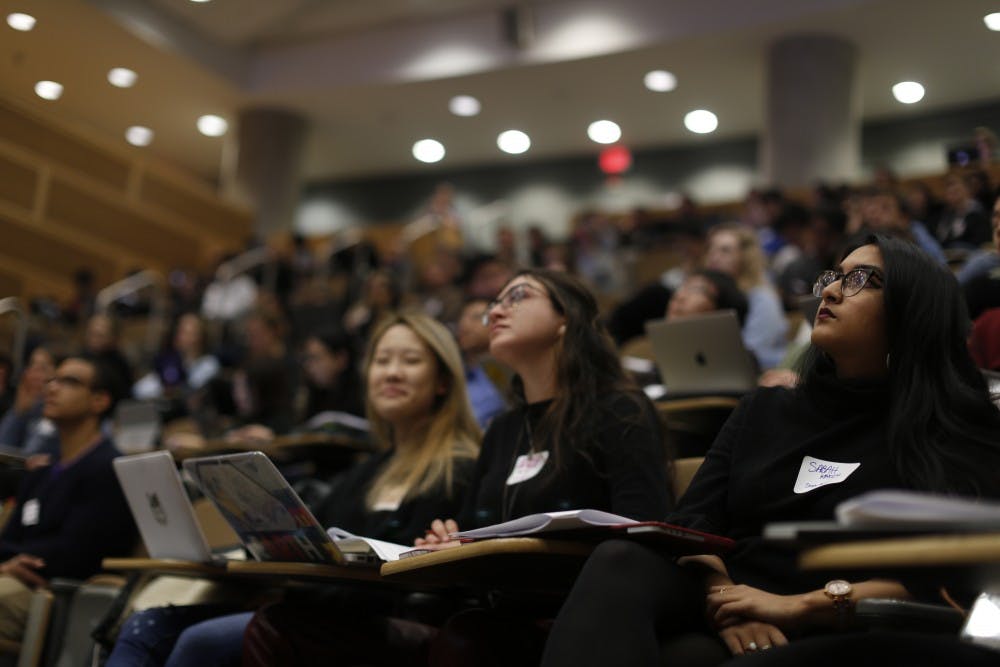CORRECTION: An earlier version of this article incorrectly stated how many many students and teams the Makeathon featured. It featured 37 teams and 138 students. It also incorrectly stated where Callie Brauel works. Brauel works at the Entrepreneurship Center. Additionally, the article incorrectly identified the name of the Makeathon. The name is the Carolina Challenge Makeathon.
The Carolina Challenge Makeathon weeklong event kicked off on Sunday, giving creative students the chance to showcase their talents — and compete for over $10,000 in prizes.
The Makeathon is a cross-campus competition fueled by creativity to channel innovation into physical and digital prototypes that promote positive social impact.
"I just love creating things, so I'm in it to learn, and I'm interested to see how this entrepreneurial perspective of innovation intersects with product design," said Brittany Huffman, Makeathon participant and graduate student in the Department of Chemistry.
UNC's first Makeathon featured 138 students, 37 teams, 14 mentors, 15 workshops and nine cross-campus partners, said Callie Brauel, assistant director of the Entrepreneurship Center at Kenan-Flagler Business School. Students compete with an academically diverse team of three to five other students in one of two tracks: digital or physical product development. For academic diversity, each Makeathon team is required to have a combination of at least three different majors.
Students can win prizes for the Best Digital Product, the Best Physical Product, Creative Makerspace Use, Creative App Lab Use, Student's Choice and Best Overall.
Participants are also granted special access to on-campus makerspaces, app labs, workshops, research databases and expert mentors to design, reiterate and enhance their products, business models and pitches.
Jeff Terrell, a professor in the Department of Computer Science and a mentor for the Makeathon in the late-stage digital track, runs the App Lab, where students can learn how to build web and mobile applications.
“Both faculty and students are focused on understanding things better and advancing the boundaries of what us humans know, and I think that’s really important,” Terrell said. “We are helping students think more in terms of making things, and showing them that the barriers of making things are not actually as high as they might think.”




